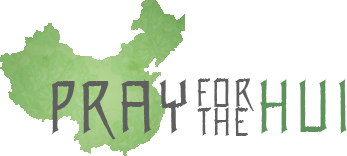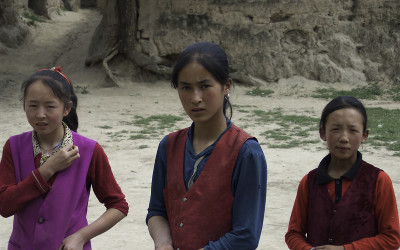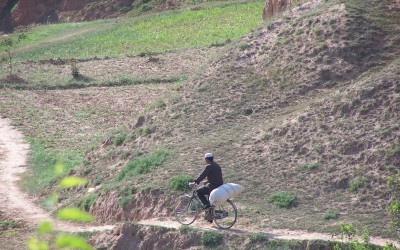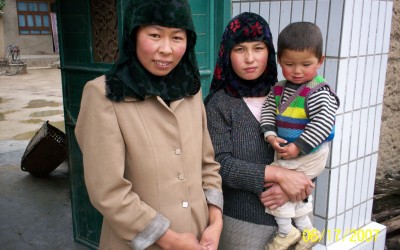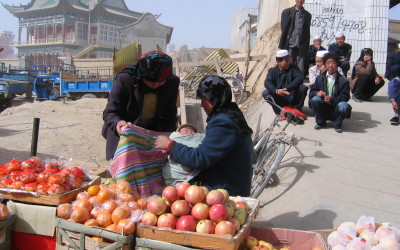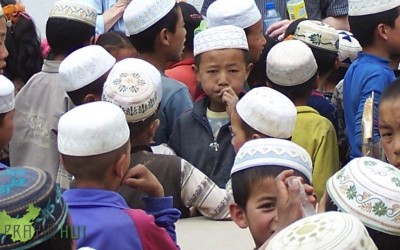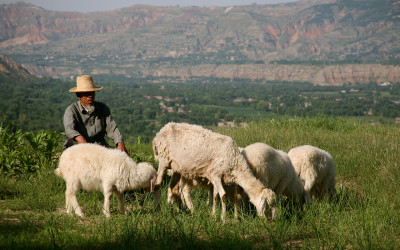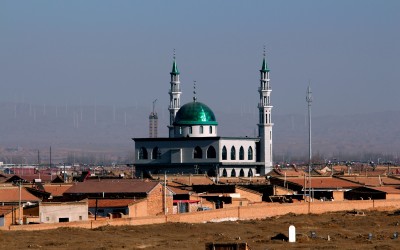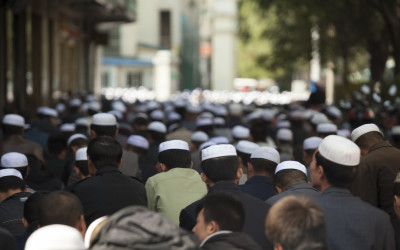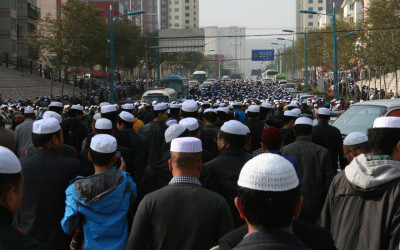The Dongxiang
And it shall come to pass that everyone who calls upon the name of the Lord shall be saved.
Acts 2:21
The Basics:
The Dongxiang people, with a population of 621,500, are the fourth largest of China’s 10 Muslim people groups. Their origin dates back to the 13th century when China was subdued by the Mongols, and Genghis Khan moved some of his garrisons into northwest China to control the land he had taken. Soldiers intermarried with local women and gradually developed their own distinct ethnic group, now known as the Dongxiang people. The largest concentration of the Dongxiang people is in the rugged, dry mountains of Gansu Province. Dongxiang County is a narrow, desolate and arid valley, bordered by rivers on three sides.
Their Beliefs:
Islam is the dominant religion of the Dongxiang, with one mosque for every 30 homes and one paid Muslim worker for every 18 families.
Their Livelihood:
Most Dongxiang are farmers whose main crops are potatoes, barley, millet, wheat and corn. Many also raise livestock, particularly sheep. The Dongxiang are known for making elaborate rugs and growing their “three treasures:” apricots, melons and other fruits.
Their Language:
During their seclusion in northwest China, the Dongxiang people formed their own language which is related to Mongolian. Originally it was only a spoken language. A writing system has been developed, but most are still not aware of it. They have an oral tradition of legends, stories, folk songs, riddles and proverbs. Some Dongxiang understand spoken Mandarin, but many have only had one year of schooling and find it difficult to learn Chinese. The Dongxiang people are considered among the poorest and least literate of China’s minorities.
The Situation:
No official study groups or churches exist among the Dongxiang, though there are a few Christians. Foreigners are restricted from the area, and Han Chinese believers have been harassed and even imprisoned for sharing the gospel. There is currently no Bible, radio broadcast or evangelistic material in the Dongxiang language.
Dongxiang County
Communities of Followers of Jesus
Joseph* and Mary* took their kids to visit a tea market, and the shopkeepers were all so excited
to talk to them. In the first visit, God allowed them to have very interesting conversations about the Qur’an, Muslims around the world, prayer, and Jesus. Now they go visit these Dongxiang friends every week, and every time they leave, a dozen new friends line up, waving and saying, “Come back and talk more!”
Jibril – People Like Us
Jibril* told Joseph* that he cried a lot when he ended his relationship with his girlfriend. He said that men are not supposed to show a lot of emotion, but he knows they can cry, because he once saw his father crying when he left home to go to university.
Jibril has been away from home for one year. He’s an average college kid who likes to play video games, do puzzles and solve math problems.
Diaspora and Prejudice
Cities in Gansu contain neighborhoods and sections with high populations of Dongxiang people. Dongxiang people refer to these areas as Little Dongxiang. When Han people or even other Chinese Muslims look for apartments they intentionally avoid these Dongxiang areas. One Muslim woman from another people group was overheard saying, “Why would someone want to live in that area? That place is no good, there are too many Dongxiang living there, they are a bunch of barbarians, the dregs of society, so it is a dangerous place to live.”
Folk Islam
Yunus* once told Abram* that whenever his daughter was sick, they would take her to an Imam. He would dissolve portions of the Qur’an into a cup of water and let her drink this water as a medicine to heal her. Then Joseph* shared with him, “I am a follower of the prophet Jesus, and He has power to heal all of our sicknesses! We can directly ask God in Jesus’ name; we don’t need any mediator. Next time your daughter gets sick, call me and I will show you how to pray.”
Hunger for God
“It may be that some Muslims are following your Jesus, but it will never happen amongst the Dongxiang. We are traditional and will never relinquish Islam and Muhammad.” This was one of the most fervent declarations of Ayinsha,* a young entrepreneur.
He is risen! He is risen! He is risen indeed!
“Jesus did not die on the cross! Judas did!” Such was the emphatic statement of the father of new believer Abraham* as he rejected the notion that the great prophet Jesus could die such a gruesome death. Abraham’s parents have witnessed a distinct change in their son since he began following Jesus. The change appears to be good, but as they hear their son’s beliefs they cannot reconcile the incarnation and death of Jesus with their religious heritage, so they continue to reject the truth.
On God we have set our hope for Chinese Muslims, on God who raises the dead!
For over a century, followers of Jesus have planted their lives among Chinese Muslims and proclaimed the Gospel. Yet, today there are less than 1,000 followers of Jesus among the Hui, Salar and Dongxiang, and only a few small house churches. Praise God that today men and women and families from around the world (including Chinese believers) continue to intentionally live among Chinese Muslims and proclaim the Gospel. Praise God Chinese Muslims are hearing the Gospel and some are believing.
Why the Hui, Salar and Dongxiang?
Today in China, three people groups — the Hui, Salar, and Dongxiang — share a common characteristic distinct from the rest of China: they are Muslim. Though they trace different ancestry, speak different languages and often look like different ethnicities, they all carry the same weight of being minorities in their own country.
Moreover, these peoples also share another trait: they have been all but forgotten by the rest of society.
Reaching China’s Muslims (Video)
This video is posted with permission from East Asian Peoples (http://vimeo.com/channels/245669/29080715).
Pray for the Dongxiang
- Ask God to send believers to live among and boldly proclaim the gospel to the Dongxiang people.
- Pray that God will open the hearts of the Dongxiang to the Good News of salvation so that they may enter His kingdom.
- Pray for the few Dongxiang believers to be discipled, and for their witness to bear fruit in their communities.
